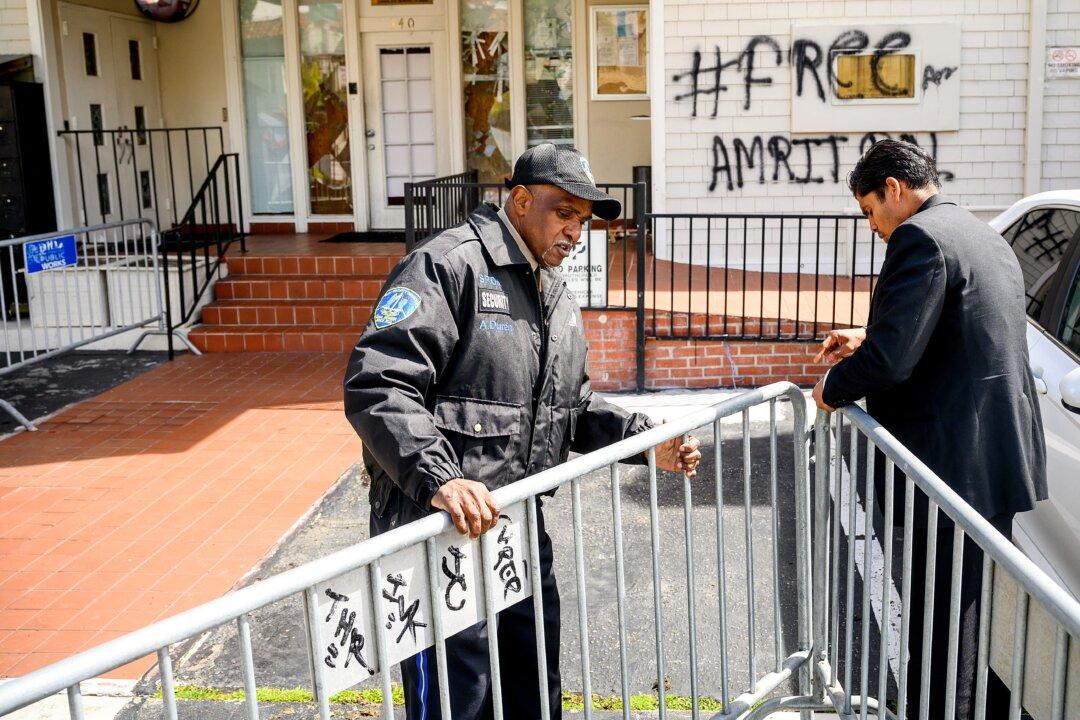The Indian Consulate in San Francisco was allegedly set ablaze by Sikh separatists—who sought an independent Sikh homeland called Khalistan in India—on July 2, drawing condemnation from the United States.
Diya TV published footage of the incident on Twitter, allegedly released by Khalistan supporters, which shows that a fire had broken out in the building. The San Francisco fire department promptly extinguished the fire, and no injury was reported.





